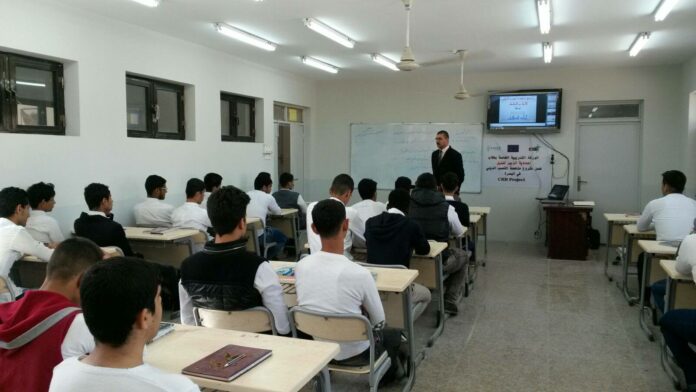Dr. Dergham Al-Ajwadi – Administrative deputy governor of Basra
Introduction
This report was prepared in particular based on the official data of the Planning Department and other concerned sections in the Basra Directorate of Education and also based on the “Basra Governorate Plan for the Development of the Education Sector 2019-2022” prepared by UNICEF in cooperation with the Basra Directorate of Education.
He also used the reports of the relevant committees, the meetings, and encounters with officials of the education department in Al-Basra governorate, It also collected the complaints of citizens and parents of students received by the Office of the Administrative Deputy in Basra Governorate about the education sector and analyzed.
As well as dozen of field visits and meetings with the teaching staff, and students, and listening to their problems.
The main objective of this report is to monitor and accurately diagnose the problems of the education sector, measure their actual size, and their current and future effects on the education sector and the future of the country, to prepare plans to address these problems and obstacles and to evaluate the current plans and their ability to solve the crisis in the education sector in Basra Governorate, and certainly what applies of Basra is also applied to other governorates.
Perhaps the basis of the conundrum lies in the absence of awareness of the country’s senior leadership of the importance of the education sector and its centrality in determining the country’s future, so we find clear negligence in the treatment of the education sector by successive governments in the last four decades, This neglect translates into the fact that the education sector has not received more than 4% of the country’s GDP for four decades, according to World Bank data.
We took into account briefness and brevity in presenting the problem and its causes and giving appropriate solutions by highlighting the gaps in the education sector, and indicating the amount of shortage so that the planner can take into account the urgent needs, and the time limit available to address them, because the crisis is not heading towards a breakthrough in the short term except by a limited amount.
Historical presentation of the problem
The education sector in Iraq in general and Basra, in particular, suffers from problems and large chronic gaps it goes back four decades when the Iran-Iraq war began in 1980, when the war caused irregular attendance in schools in Basra and its turmoil, And its interruption for long periods, in addition to the deletion of a large part of the curriculum annually, and the rate of deletion reached (30-40%) of the curriculum books, as well as the involvement of teachers in the battlefronts within the army and the People’s Army, so schools lost their teachers, and because of this absurd war, the construction of schools, or their reconstruction and restoration has stopped, and deprived of financial allocations, and remained captive to school construction campaigns with scarce funding from school reconstruction stamp fees.
After the invasion of the former regime of Kuwait, the education sector was subjected to a great shock, as its allocations became non-existent, as there were no new buildings, no restoration, and no maintenance of old buildings, in addition to the humiliation and starvation of the educational staff, who were paid the equivalent of only two dollars as a monthly salary that was not enough to eat one day, forcing the teachers to pursue other professions that are not worthy of them, such as selling cigarettes, or bedding sidewalks, to sell consumed goods or work as a construction worker, and this led to the collapse of the value system of society, so it collapsed. Many were faced with an urgent need and slipped into cheating, bribery, and failure to perform their professional and moral duty, while the student was also suffering from hunger, and from the lack of provision of clothes, shoes, bags, stationery, and textbooks, which are not provided by the state, nor can the family secure them, and these very harsh conditions lasted (13) years of hunger, disease, loss, and loss of a sense of security, or hope, preceded by eight years of grinding war.










